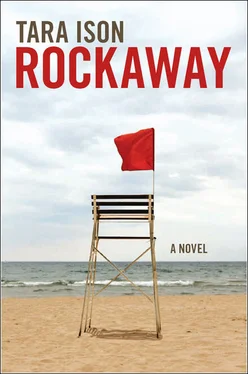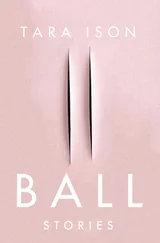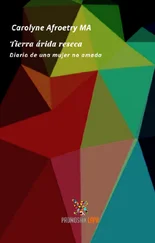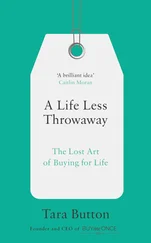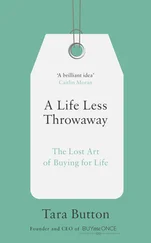But the lemons in your hair, that was yours, she reminds herself, you had that. Your own mother combing your hair, and your own father at the beach, watching to make sure the waves didn’t carry you off and disappear you forever. And the birthday parties, the real, once-upon-a-time parties, before her brother died, when it was still okay to celebrate that she was there and alive. She had that, it was real and they were there, they gave her all of that. Before they were broken or disappeared. They did their best.
So, that’s it, then, why isn’t that enough for you, it has to be. Lemons and ocean waves and candles on cakes. A mouthful of honey. Your parents, waving to you from shore.
The labor gets worse, and the groans more ragged, and a thrill flares through Sarah, a delight in every looming, ugly, torturing second of it. When Emily starts to scream from somewhere deep inside, Sarah gulps from her glass of McCallan and thinks about hospitals and doctors, and what if something’s really wrong this time, maybe she needs an episiotomy or a Cesarean. Maybe they should just hack her open like a chicken. Or they could go at Emily’s belly like it’s a piñata, the whole family taking turns with a broomstick. She wonders if having this baby’s going to kill Emily, tear her up for real, spill all her insides so the tub is a giant vat of drained-out, frothy Emily-blood, and a dead Emily, Michael crying, everyone hysterical at losing her, the baby still lodged inside, gotten rid of with Emily, and then they’d all turn to her, Sarah, she’d be all they had left, their child, wife, mommy, and they’d all put their arms around her and let her hold back on. It would all be hers, the house in the country with the sheep and the ducklings, the garden and buzzing, endlessly honey-rich bees, the nanny to raise the kids, the maid to clean, the rich husband, the healthy, able mother and father there to take care of her and keep her safe, the art on an easel just waiting for when she felt like getting around to it, because it doesn’t matter, there’s plenty of time, no tick tick tick , there’s nothing at stake, nothing to prove or define. Even the tub full of hot blood would be hers, if she wanted to bathe in it like the Countess in the painting and be frozen in young time forever, all of this would be her home, hers.
Emily screams, and Sarah stumbles over it, blinking, then steps back behind everyone to get out of the way, retreats to the kitchen, gets a handful of ice from the freezer, and there, taped to the refrigerator, is her little-girl crayon drawing: colorful flowers, a happy sun beaming spokes of sunshine, a doggy, three sheep, ducklings, My Family , two grown-up and two child-sized smiley stick figures all holding hands before a thatched-roof cottage. My perfect happy family.
No, it isn’t hers. It’s Rachel’s drawing, she realizes. It’s not her family, her house, it never will be. It’s all a mere fantasy, a birthday candle wish. A childish game of pretend.
She pours more whiskey.
Emily screams again, and, leaning sideways from the edge of the room, Sarah can still see into the tub; she can see the flush of cloudy liquid from between Emily’s legs, displacing the tub water with its thrust, first white, then a brilliant crimson, then the dark crowning of Ariel’s head. Emily takes a slow, deep moan of breath as Michael presses his mouth to the side of her damp forehead. The midwife slides her fingertips just enough inside Emily to coax out a thin lump of shoulder, then, in another brief bright swirl of blood, a white glow of skin, the baby comes rushing through, kicks its legs free of its folded, packed-tight shape, and opens its tiny tadpole underwater mouth. The midwife lifts the dripping body from the water and settles it onto Emily’s heaving chest. Leah and Sid hug each other, Nana is clapping her hands with joy at the birth of her seventh great-grandchild, Rachel is squealing, wanting to touch the baby, and everyone else slowly begins to breathe just as the baby takes its first whimpering choke of air. The dun-colored cord still links from the baby’s belly down into the water, into Emily, and from where Sarah is standing the refraction at the water’s surface gives the illusion that the cord has already been sliced in two.
SHE AWAKENS TO the sound she’s grown used to: crickets, grasshoppers, and cicadas, swarming bees, their relentless insect rasp. But the clear white light through the windows is seashore light, greenless and blank, and she remembers, after a moment, that she’s back in Rockaway.
The buzz of wings in her ears transmutes to crashing waves, and instead of diapers and fruit and oatmeal she smells turpentine, linseed oil, the meager blots of paint on her palettes. And curry, left in the air from Avery’s dinner the night before, the scent that had greeted her as she walked into the kitchen, hot, tired, yoked with her suitcase and bags of fading vegetables.
“Ah, you are home now! And Emily is having her baby?” He’d beamed, as if beside himself to see her back, and heaped her a plate of basmati rice. She realized that with Bernadette in Sri Lanka the empty house must have seemed very lonely, and so she ate her dinner in the kitchen with him, just to be polite. They sat facing each other and sweating at the rusting, unstable TV tables he and Bernadette always ate on. She showed him the zucchini and tomatoes and basil she brought from Connecticut, and over their curry he boomed for her a long speech on Sri Lankan produce. She finally interrupted to ask if anyone had called while she was gone, if there were any messages. Only her parents, he told her. They were missing her, looking for her, sounding worried, why was she not answering her cell? No, no, there is no emergency, but they called many times; they will call again tomorrow. She must be missing them, too, he stated loudly, When is she going home, Why did she not tell them she was going to Emily’s, She must call them, She must let them know she is fine, When is she going home? All proclaimed in his thundering voice, yelling rebuke at her, chastising her stubborn, pointless flight, her hideous self-indulgent selfishness, and she winced over her plate. Then she remembered how he and Bernadette used to yell at each other, blasting the house with their lilts, how she used to cringe, sitting on her bed and eating her dinner in her room upstairs, at the harsh familiar clap of their words until the day she realized, spotting the beige plastic snailed in each of their ears, they were both just hard of hearing.
She promised Avery in a modified return yell that she’d call her parents first thing in the morning. He nodded, satisfied. What an idiot she was, to think Marty might have called, looking for her. Wondering when she was coming back. She hadn’t called him from Connecticut. Let him wait for the phone to ring, she’d thought. Let him wonder about her, what she was doing, what kind of small or large gap his absence might be creating in her carefully occupied-else-where day. Let him wonder if the lack of him digs in sharp, if it leaves a print. Or if it’s just rinsed away, like a footshape in sand swirls off to grainy water beneath a wave.
It’s Friday night, she thought, watching Avery chew. He must be at Itzak’s for shabbes dinner. Practically down the street. She pictured the family singing like some flame-of-God, End of Days church choir, Itzak pouring her a fat snifter of brandy, Marty nudging over his prayer book so she could see, under the table placing her hand on his thigh.
She didn’t bother to ask Avery if anyone else called. Instead, she inquired if he’d heard from Bernadette, how she was doing.
“Yes, she is calling me from home every Sunday. The surgery for cataracts is very successful. I am very relieved.”
Читать дальше
